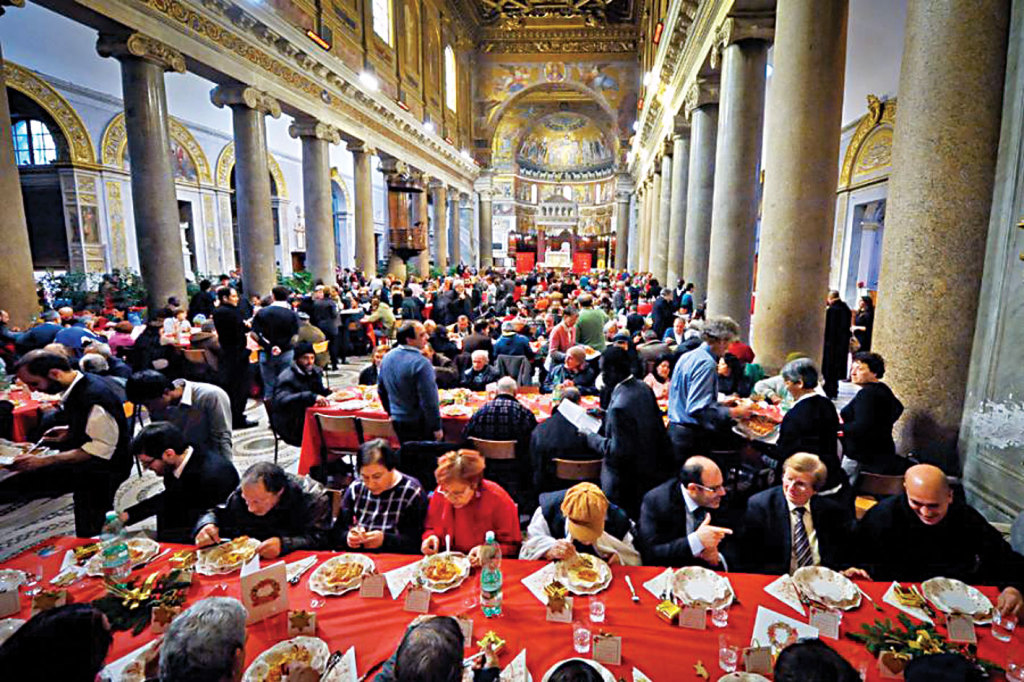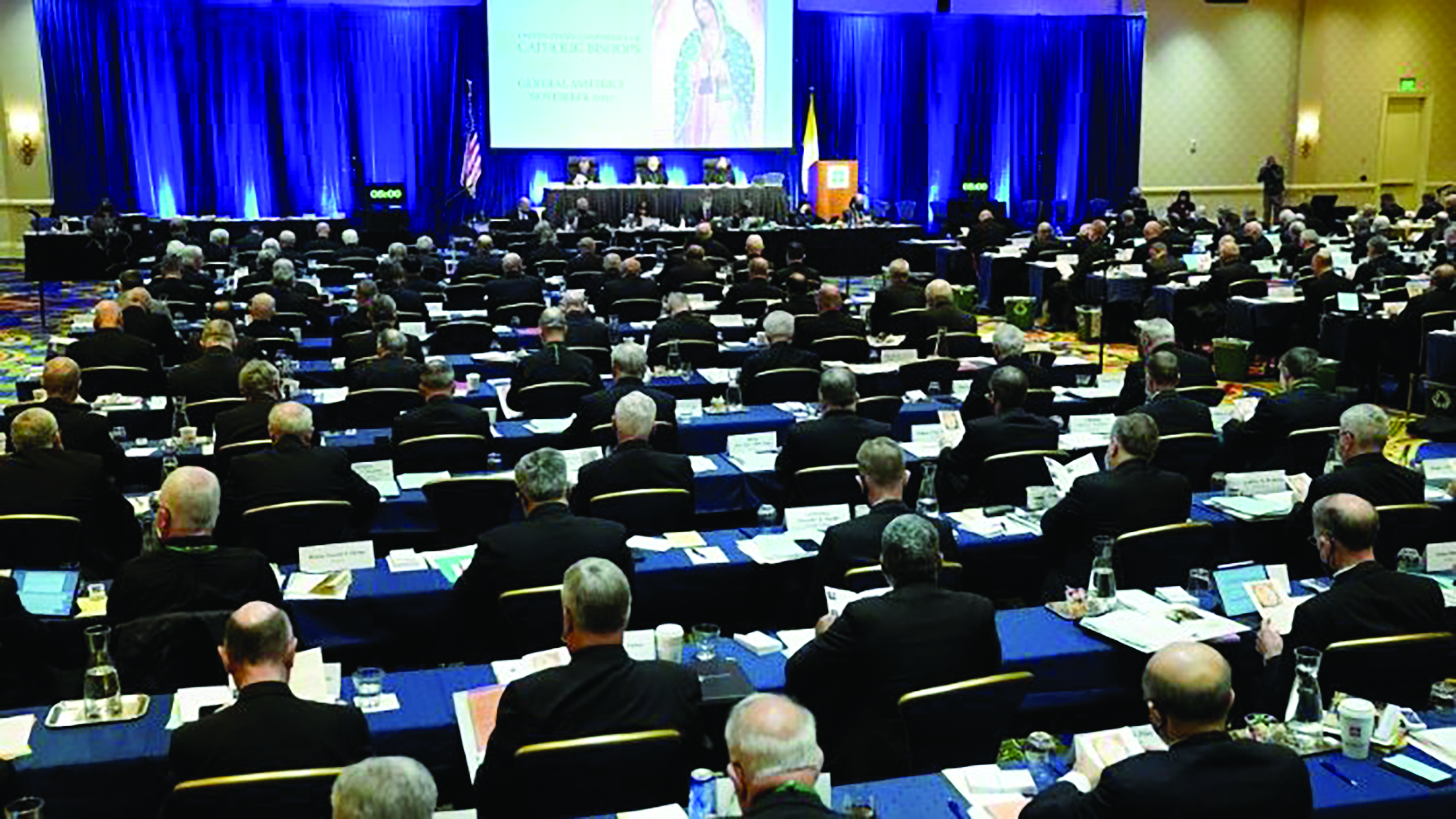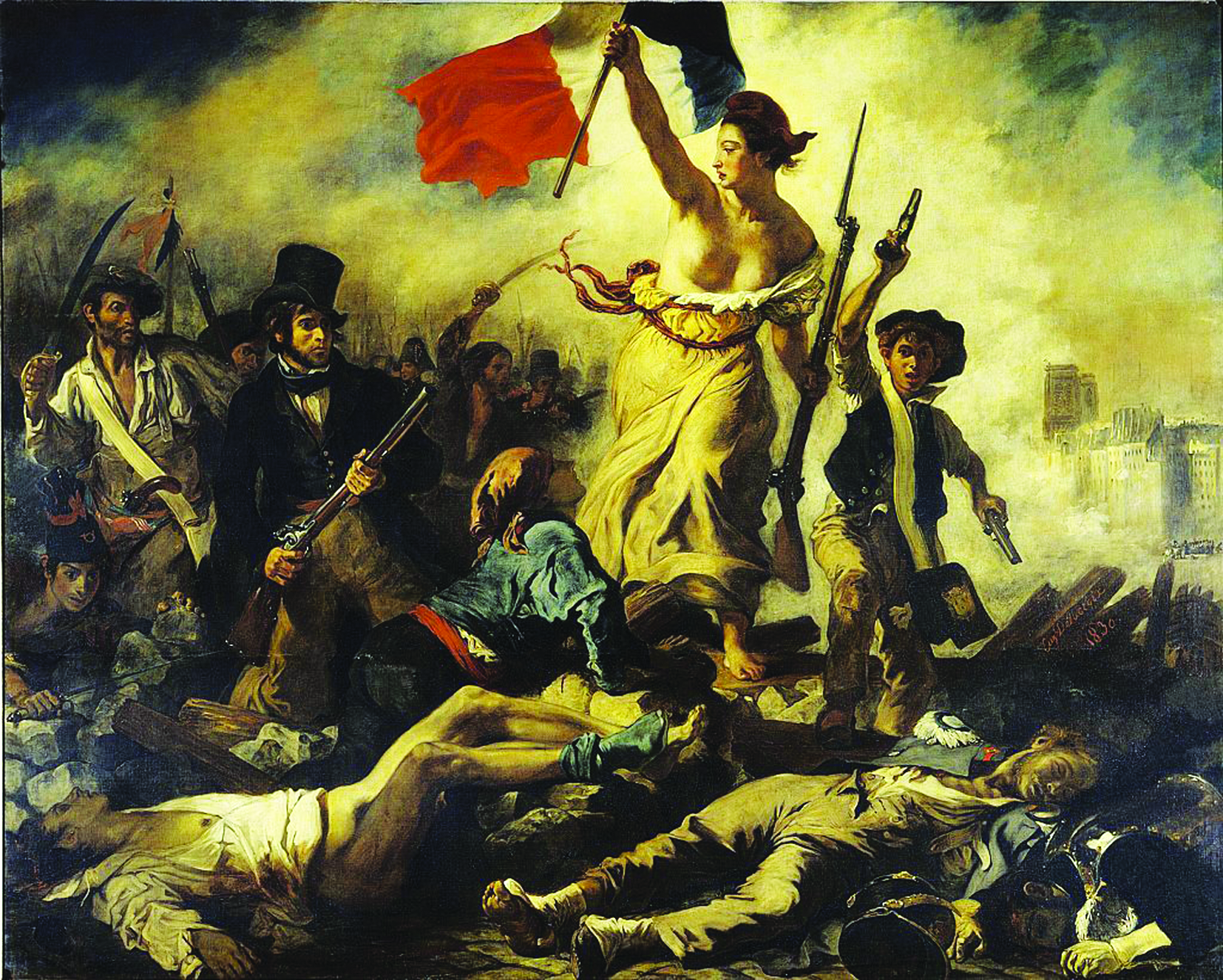On November 17, renovation work began to create a shower area for the homeless near St. Peter’s Square. Francis’ Almoner tells us more.

On December 17, 2013, Pope Francis talks with three men who live on the streets near the Vatican. As part of a low-key celebration of his 77th birthday, the Pope celebrated morning Mass and had breakfast with the men.
“Father, I can’t come to the restaurant with you, because I smell bad.” Franco is a homeless man from Sardinia, with a gray, bristly beard and sun-battered skin. At the beginning of October, upon being invited to a birthday dinner by a bishop, he opened the prelate’s eyes as to the most important need for Rome’s homeless: “Here nobody starves to death. You can find a sandwich to eat every day. But there aren’t any restrooms or showers around for us to use.” The bishop in question is Konrad Krajewski, Pope Francis’ almoner. The message was immediately received: on Monday, November 17th, work began to build three showers inside the pilgrims’ restroom area under St. Peter’s colonnade. These showers will be reserved for the homeless who live near the basilica, who will be able to shower and change clothes close to the Apostolic Palace. And the Almoner’s invitation has been taken to heart by a dozen Roman parishes, in areas of the city with a significant number of street dwellers: they, too, have begun putting in showers for the homeless.
Monsignor Krajewski, known to one and all as “Don Corrado,” has been bringing food and aid to street people for years. It is for this reason that Pope Francis chose him, making him a bishop and putting him in charge of the Almoner’s Office: his task is to be the Pope’s “first responder,” to bring small-scale economic aid to those in need. And so the Polish prelate relates his eye-opening encounter from the beginning of October. “I had just exited Holy Spirit Church where I hear confessions. On Via della Conciliazione I met Franco, a homeless man. He told me that that day was his fiftieth birthday, and that he had been living on the street for ten years.” The bishop invites him to dinner at a restaurant. “But I smell bad…” is the reply. The bishop continues his account: “I brought him with me anyway. We went to a Chinese restaurant. While at table, he explained to me that homeless people in Rome can always find something to eat. What is lacking is a place to wash up.”

The traditional Christmas meal in the Basilica of Santa Maria in Trastevere offered to Rome’s poor by the Sant’Egidio Community .
In Italy’s capital there are charity soup kitchens, run by the “Caritas” organization, and others such as the Community of Sant’Egidio. Rome’s parishes also give assistance in many ways. The homeless in Rome know where they can turn. There already exist places where they can have a shower. The Community of Sant’ Egidio, always on the front lines in aid to street people, has published an up-to-date handbook entitled Where to Eat, Sleep, and Bathe. Franco explains, though, that at these places, “there are always crowds of people and not enough time available. That’s why I prefer saving up my money and going to reserve a shower at the train station once in a while.” The Pope’s Almoner, who up to then had considered meals for the homeless to be the top priority, doesn’t waste any time. He is used to acting quickly, without making grand plans, without organizing fundraising, which may take months. “In the Gospels, Jesus always uses the word ‘today’… And it is today that we must respond to necessity.” And so he decides to visit a dozen or so Roman parishes whose territories include significant numbers of street dwellers. He enters the parish buildings. If there aren’t any showers already, he asks for some to be built, with funds from the Pope’s charity. These are not expensive projects: they aren’t meant to become large-scale community centers. Rather, they are to become part of a widespread network, for people in the neighborhood, in a city whose public restrooms are usually closed, and where the homeless can’t just walk into a coffee bar to use the bathrooms. “It isn’t easy,” Monsignor Krajewski explains, “because preparing sandwiches is easier than running a shower service. Volunteers are needed, as well as towels and linens.” Don Corrado tells the pastors, “It’s on the Holy Father!” And Providence makes its presence felt. Andrea Bocelli’s foundation makes a considerable donation. A senator from the north of Italy has a company come to Rome to install showers in those parishes that still need them, free of charge.
The Vatican is also doing its part. The governor’s office has already been planning on restructuring the pilgrims’ restrooms under the colonnade, a few yards from the Bronze Door, on the right as one faces the basilica. The necessities laid out by Franco, the fifty-year-old homeless man who has spent ten years on the street, and who has seen many companions die of cold, impel those in charge to make significant changes to their plans, and urgently, with Francis’ blessing. There are now three showers for the homeless under Bernini’s majestic colonnade, one of the world’s most beautiful and visited places. “The Basilica exists because it safeguards the Body of Christ,” Krajewski points out to the reporter who asks him whether some tourists might turn up their noses at the idea. “In the poor, we minister to Christ’s suffering Body. Throughout Rome’s history, the poor have always congregated around the city’s basilicas.”
There won’t be any signs pointing out the entrance to the new showers under the shadow of St. Peter’s cupola or those in the Roman parishes. The service has been planned and dedicated to people who already live in the neighborhood, to relieve pressure on larger aid centers. The Pope’s Almoner is trying to get students from hairstyling schools involved, so that haircuts can be offered once in a while, besides just a shower. The chance to shower and keep clean will allow street dwellers—or rather, “homeless pilgrims,” as Don Corrado calls them—to be less vulnerable to diseases that are easily transmitted through poor hygiene. This is starting with Franco, who, on that sunny October afternoon, was ashamed to be invited to have dinner at a restaurant.






Facebook Comments